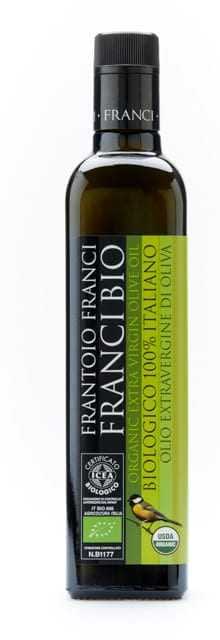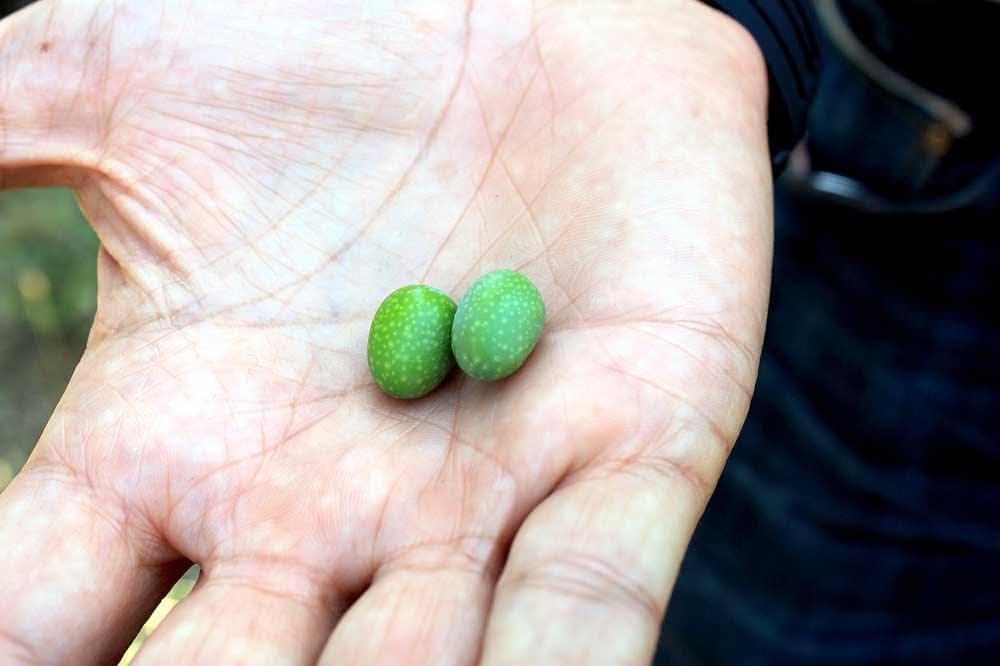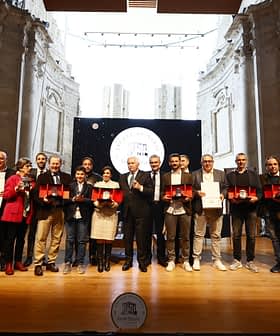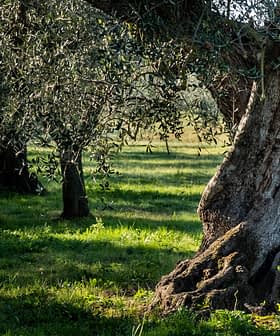When Fernando Franci set up his farm with his brother Franco in Montenero d’Orcia, over 60 years ago, things were much different than today: no mobile phones or QR codes, no computerized machines.
Yet many of the olive trees that still grow on the family’s land were here decades, even centuries ago. His son Giorgio, today leading the family business, Frantoio Franci, which has grown to be one of the most renowned brands of Italian extra virgin olive oil, still recalls the quarrels to introduce a fax machine and other small innovations.
But Fernando — 86 years old and still surveying the olive milling and the daily shipments from the Montenero farm to all over the world — is clearly proud of his son’s achievements: “Watching our bottles leaving for over 40 countries is a great source of pride for me, and I greet each of the boxes as they leave, bidding them to go far in the world,” he said.
An experienced grower and pruner, Fernando used to care after his own olive trees and the ones growing on other local lands such as those belonging to the historical Tenuta Banfi. When the famous Tuscan wine brand won a prize for an olive oil actually produced by the Franci family for them, Giorgio decided it was time to enter the extra virgin business on his own. It was 1996 when the first Franci’s extra virgin olive oil obtained from their own olives, Villa Magra, was launched.

“I went to Verona to present it at Sol. I was sure we had made a good product but I had no idea of how to propose it. I did not even have business cards or brochures,” Giorgio Franci recalled. “There I decided what I wanted to do: Aim for top quality, and let people know and appreciate our extra virgin as much as possible.”
After 20 years, he can definitely say he achieved his aim. Franci’s extra virgin olive oils are sold all over the world, from Italy’s finest restaurants to China’s luxury temples and England’s department stores. And since 1999 — when Le Trebbiane, a blend of Frantoio, Moraiolo, Leccino and Olivastra, won the first “Leone d’Oro” award — the name of Frantoio Franci has shown in almost every quality competition and guide.
In 2013, the Villa Magra Grand Cru — the diamond point of Franci’s production, an elegant single variety extra virgin olive oil obtained by selected olives from a small “cru” of the Villa Magra grove — was appointed Best in Class at the New York International Olive Oil Competition. In 2014 the farm won two Gold Awards with Francibio, the harmonic and complex organic extra virgin, and with the intense and long lasting Villa Magra, a blend made of Frantoio Correggiolo, Moraiolo and Leccino olives.
The Francis struck gold again at the 2015 NYIOOC with both the Villa Magra and Francibio brands, to join an elite group of three-time winners at the world’s most prestigious olive oil competition.
Visiting Frantoio Franci and its olive groves with Giorgio Franci, we were struck by the impressive Olivastra Seggianese: a fascinating single variety obtained from the olives of the century-old olive trees of the local cultivar growing on the Monte Amiata slopes, which in 2014 had a distinctive smell of rose-leaves and exotic spices combined with a gentle initial taste that then gave way to a long-lasting, balsamic pungency. We tasted it with a delicious salad made of pine nuts, celery and bottarga (cured mullet roe) and it tasted fantastic.

Olivastra olives at Frantoio Franci
At the same time, we witnessed Giorgio Franci’s focused passion for producing high-quality extra virgin olive oil, from the field to the bottling process, including the up-to-date milling system he adapted to his needs and knowledge. He knows each olive tree that has been tended by him and his father, including the old Olivastra trees belonging to the Banfi estate they rescued from abandonment.
This year, in July, he was quite satisfied with the olives’ conditions — a thick skin and small pit, meaning a lot of pulp — but a little worried about the dry conditions. Now that rainfalls are arriving over Tuscany and the rest of Italy, there could be a concern for too much rain, but he seems ready to face it: “Experience is important,” Giorgio Franci told us, “and each harvest is a chance to learn more. Yet, every year is different and we have to be flexible and ready to adapt to the specific situation.”








